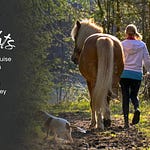Emma Cornish has spent four Olympics and countless international competitions perfecting the art of keeping elite horses cool. But the 30-year equine veteran and founder of Ice Queens warns that most horse owners are making critical but easy to fix mistakes.
This Week's Deep Dive
Our expert guest Emma Cornish is a multi-award-winning equine professional with over 30 years in the field, from Olympic grooming to veterinary rehab. She's the founder of Elite Equine Care, together with Helen Reynolds runs Ice Queens and is an ambassador for Gower Granary, who offer sustainable bedding and forage solutions trusted across the UK.
Key Topics:
The scraping myth that's been "scientifically proven" wrong
Why your wooden stable might be an oven at midday
The 30-degree government rule that could reshape competition calendars
Olympic-level cooling techniques you can use at home
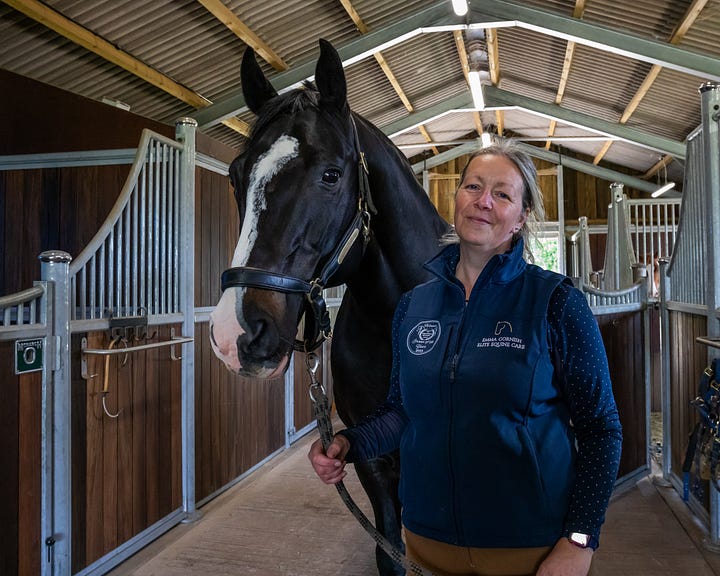
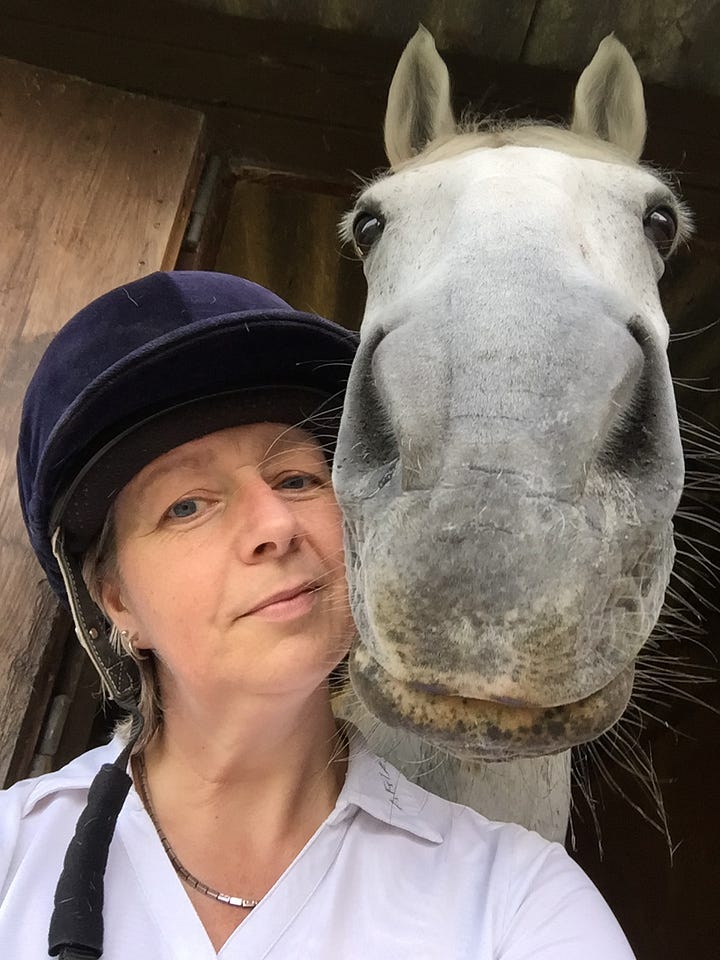
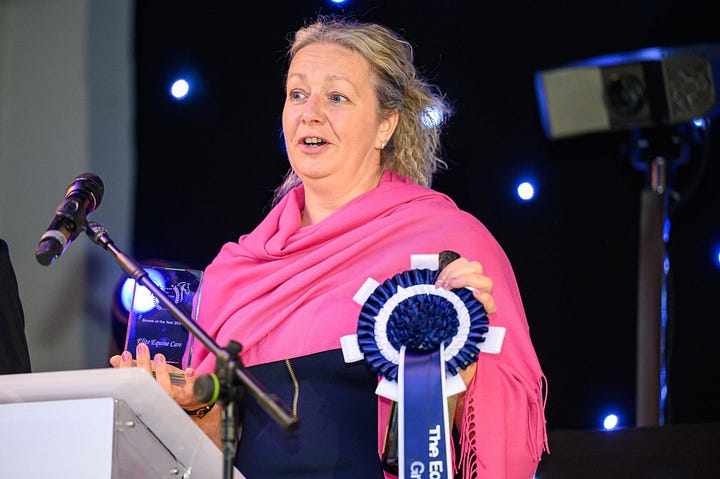
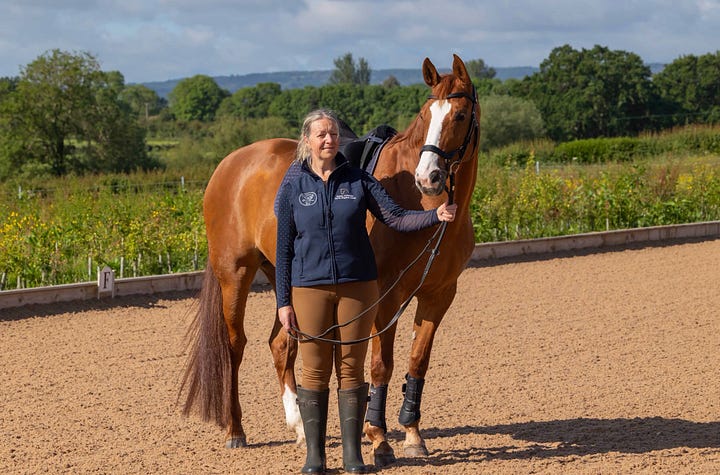
The Big Takeaway
Four heatwaves of 2025, and Emma's assessment is that many horse owners haven't caught up with the reality of our changing climate. The most dangerous misconception? The deeply ingrained habit of scraping water off overheating horses. "If your horse is overheating and you are trying to rapidly cool them, don't scrape the water off. The water needs to stay on," Emma states firmly. This myth has been scientifically proven wrong using thermal imaging, yet we still reach for that scraper in our grooming kits.
The broader issue is more concerning: while some are adapting, Emma notes that "it's surprising how many people haven't quite got there yet" in accepting that extreme heat is now the norm, not the exception.
Three Things That Stood Out
1. "The water needs to stay on" - science trumps tradition
Thermal imaging proves that water must remain on the horse to draw heat from muscles and body. Only scrape once the horse has cooled completely. Emma's advice: "Just keep aggressively cooling them. You need to leave the water on."
2. Your stable might be an oven
Emma's challenge hits home: "Have you stood in your horse's stable at the hottest point of the day to see how hot it is?" Wooden stables can become boiling pots, making them worse than leaving horses out with adequate shade. The assumption that "indoors equals cooler" is costing horses their comfort and potentially their safety.
3. Government guidelines are reshaping the industry
The revelation that animals shouldn't travel over 30 degrees unless in temperature-controlled vehicles is already forcing event cancellations. Emma witnessed competitions cancelled due to heat for the first time - a preview of how climate change will reshape the competitive calendar.
The Myth-Busting Reality Check
Emma's frustration with persistent cooling myths reflects a broader challenge in the equestrian world: updating practices based on science rather than tradition. The scraping myth persists because it's what generations have been taught, despite thermal imaging clearly showing its harmful effects. The water draws heat from the horse's body - removing it stops this crucial cooling process.
This extends beyond emergency cooling to daily management. Emma's practical test of actually standing in your horse's stable during peak heat exposes how we project human preferences onto horse management without checking the reality.
Climate Adaptation in Real Time
Emma's observation that we're experiencing "massive peaks and troughs" rather than gradual temperature changes explains why horses struggle more than in previous decades. The sudden spikes to 30+ degrees, followed by drops, then more spikes, prevent natural acclimatisation. This isn't just inconvenience - it's a fundamental shift requiring new management approaches.
The admission that some event directors and organisers still have heat management "on the periphery" rather than as a priority suggests the industry is behind the climate curve. With government guidelines restricting travel over 30 degrees, this gap between awareness and action could prove costly.
Professional Perspective on Everyday Challenges
Emma's background managing forges at four Olympics provides unique insights into heat management under pressure. Her transition from forge manager to cooling specialist illustrates how elite sport innovations can benefit everyday horse owners. The techniques used on Olympic athletes - multiple cooling sessions, constant monitoring, shorter work periods - scale down to any horse.
Questions for Reflection
What would you do if you only had 30 minutes to save your horse's life? Emma emphasises that once severe heat stress begins, rapid intervention is crucial. Are you prepared with the knowledge and equipment needed?
Have you actually tested the temperature in your horse's accommodation during peak heat? Emma's challenge to physically check stable temperatures rather than assume they're cooler could reveal uncomfortable truths about your setup.
How will you adapt your routine as extreme heat becomes the norm rather than the exception? With four heatwaves already in 2025, seasonal adjustments may need to become permanent changes.
Join the Conversation
What surprised you most about Emma's cooling myths? Have you tested the temperature in your horse's stable during peak heat? Share your experiences in the comments below - I read every single one.










